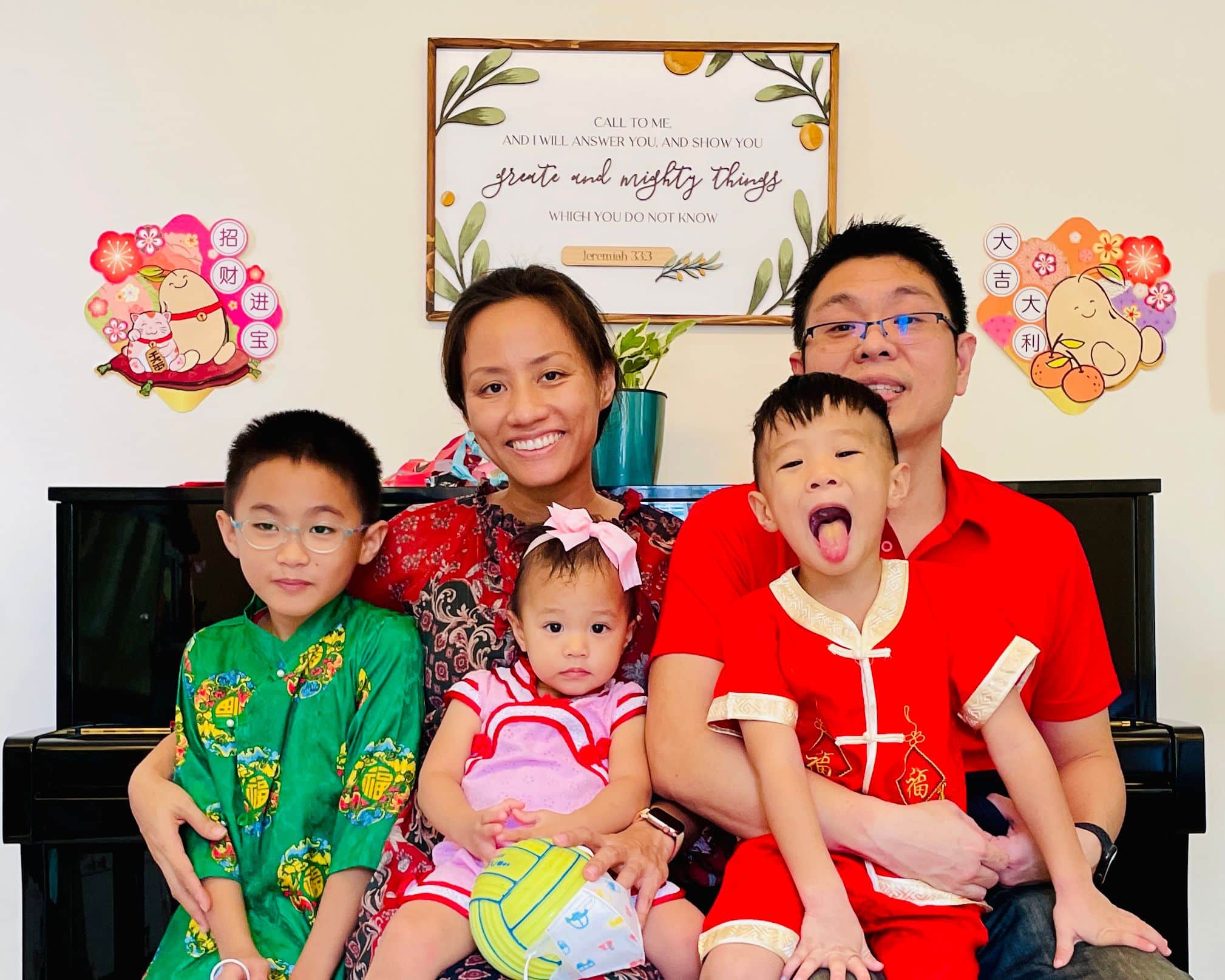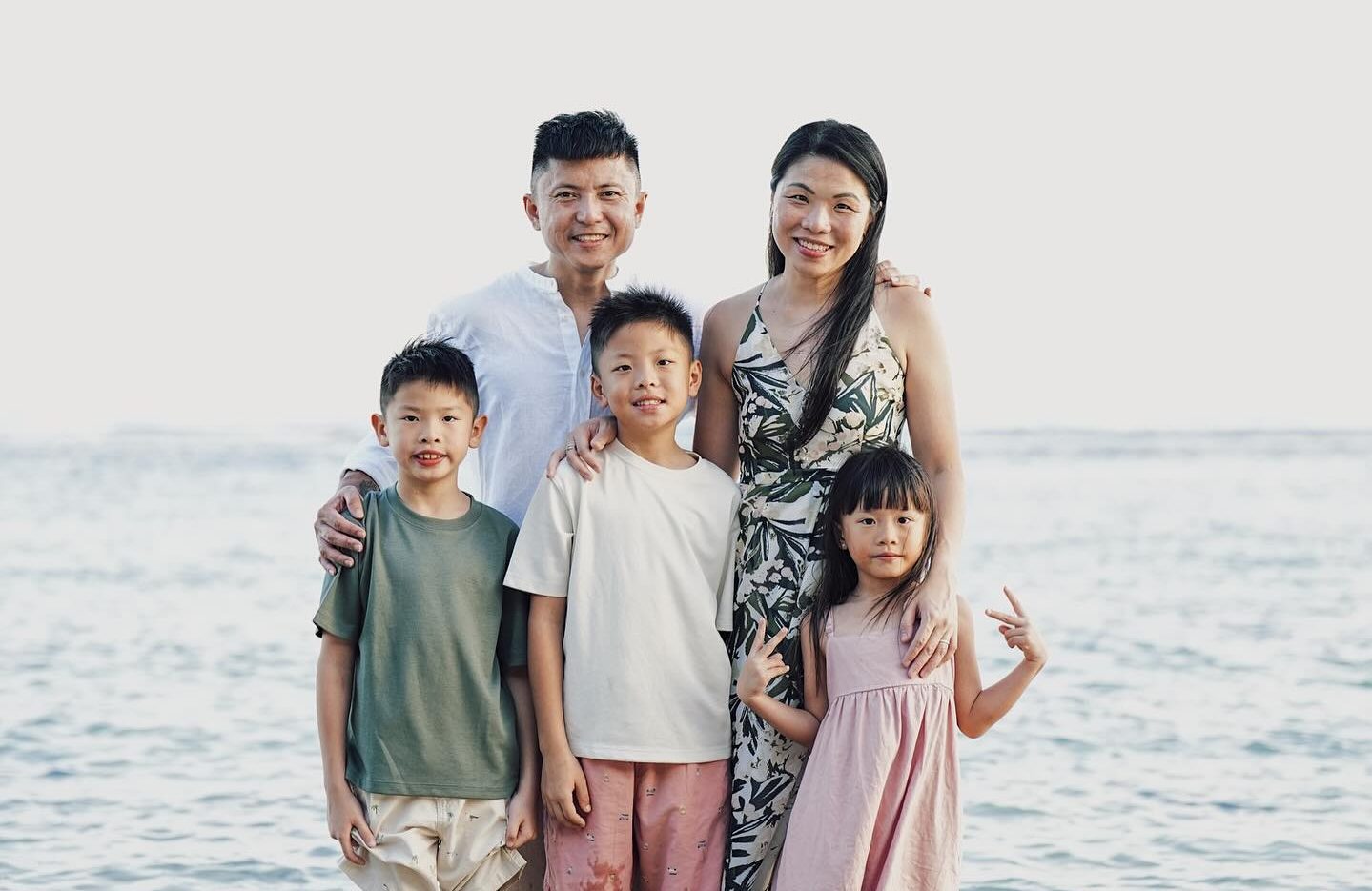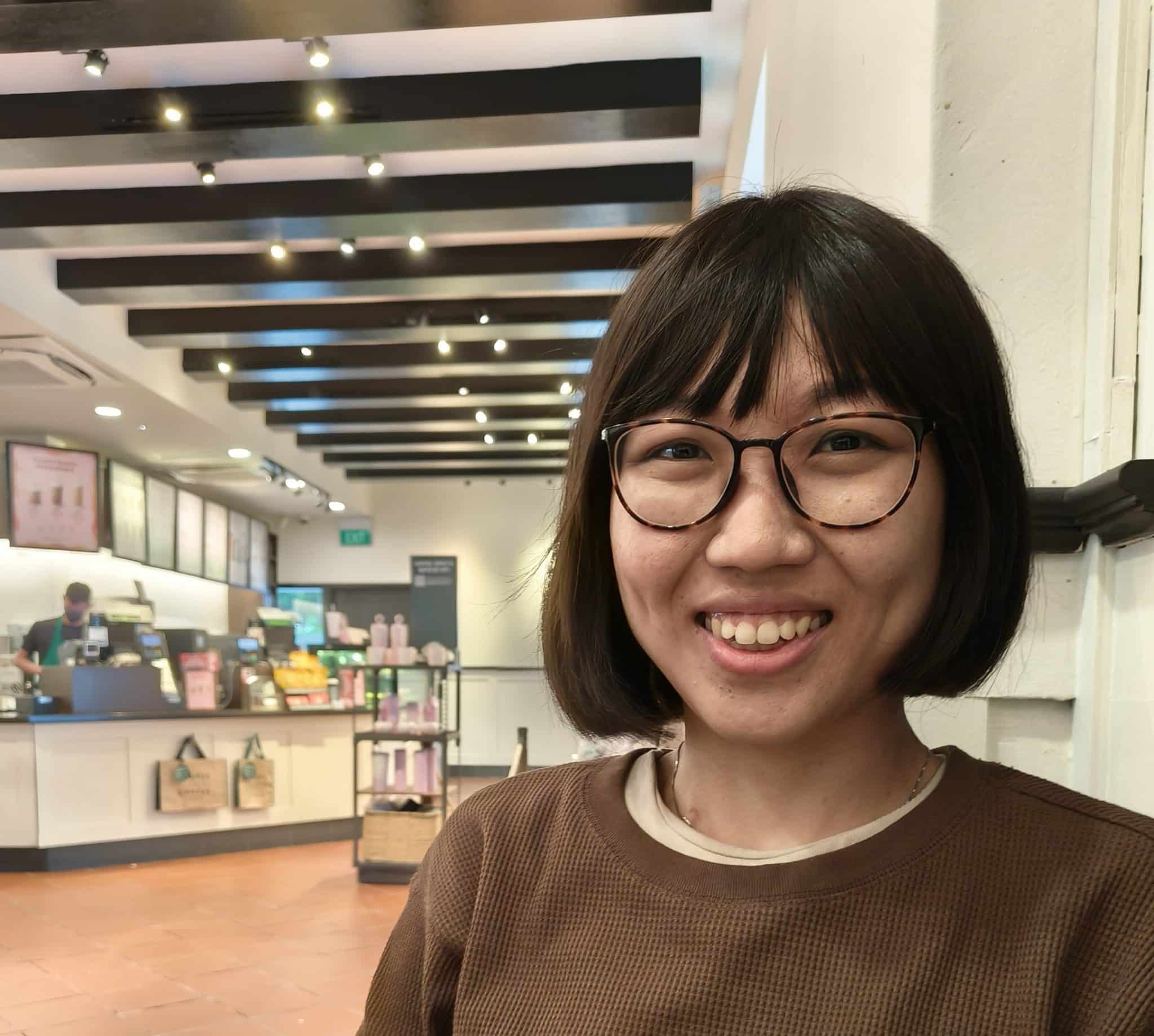“I needed to know if God still loved me”: Heartbroken widow who lost her husband, but went on to found a place for those who grieve
by Christine Leow // June 30, 2021, 4:46 pm
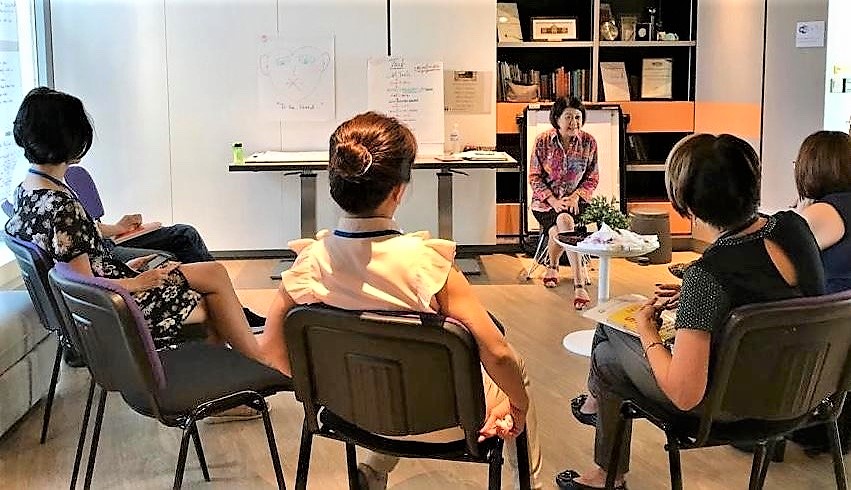
Swee founded Whispering Hope Singapore to help people deal with grief and loss after she learnt about the Grief Recovery Method® and found it effective. All photos courtesy of Joan Swee.
Joan Swee, 62, knows something about grief.
As a counsellor and grief recovery specialist at Whispering Hope Singapore, a consultancy she founded, she walks with people struggling with all sorts of grief.
She knows grief because she lost her husband Henry Chia to liver cancer.
“We are not just dealing with grief from death, but all losses in life – divorce, financial loss, job loss, major health loss, betrayal, break-ups, miscarriages, abuse and empty nest syndrome.”
She was an active member of Wicare Support Group which she co-founded, serving on its management board for two decades. In that time, she counselled many widows, from those in their 20s to those in their 70s, and developed a grief programme called New Chapter.
But Swee’s knowledge of grief is more intimate, more personal. She knows grief because she lost her husband Henry Chia to liver cancer when she was just 35.
Young love
Swee was 15 when she met Chia. He was 16. Although they went to different schools, they had mutual friends who introduced them when they attended a Singapore Youth For Christ event.
“Our group of friends attended Faith Methodist Church, which was just opposite his school.
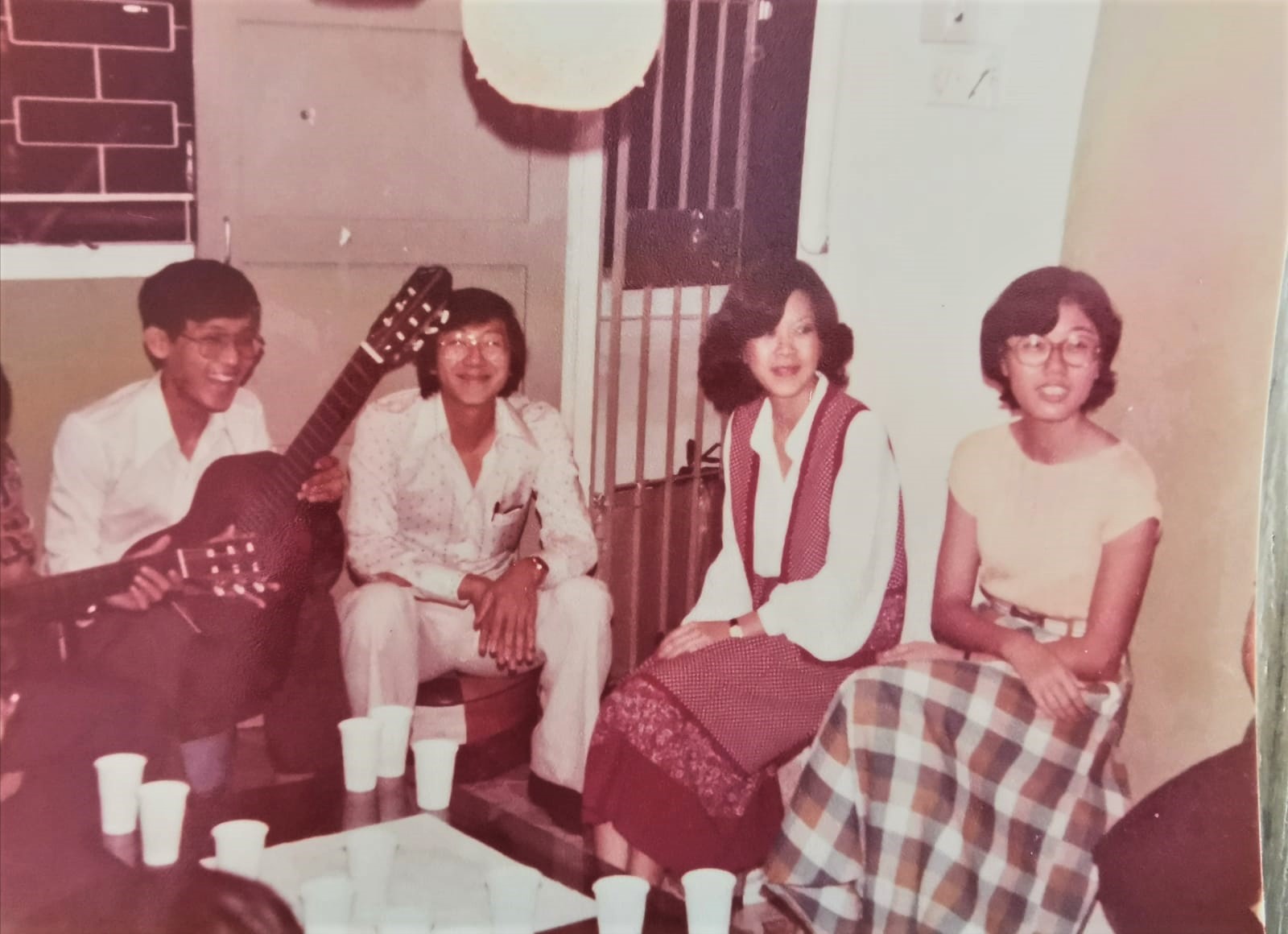
October 1977, Henry Chia (second, left) and Swee (second, right) celebrating Chia’s 21st birthday. Their mutual friends introduced them to each other.
“After church, the whole group would hang out together at the old market at Commonwealth Crescent, enjoying ice kachang (shaved ice dessert), wanton mee (dumpling noodles) and duck rice – all of which Henry loved,” said Swee.
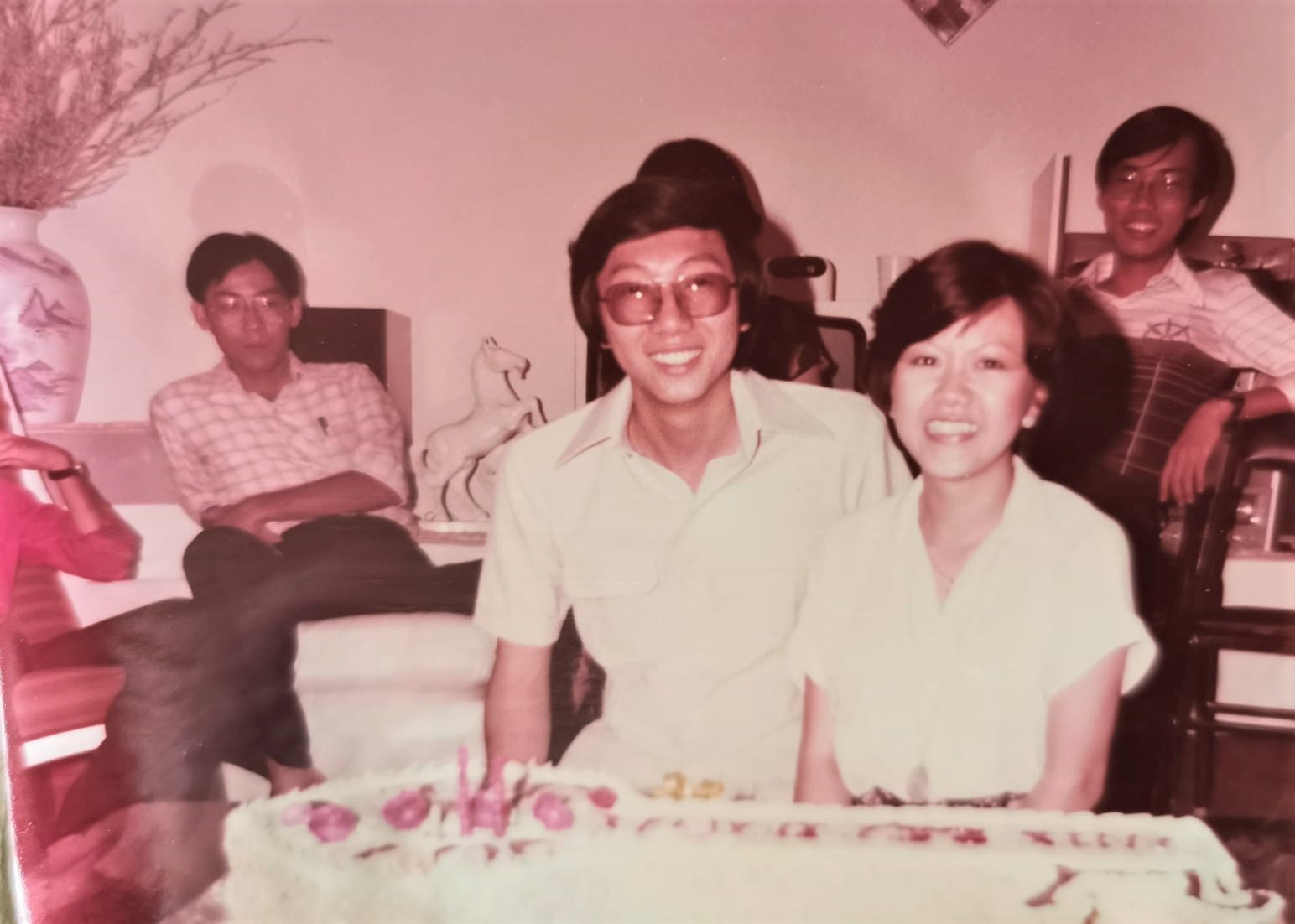
December 1978, Chia and Swee celebrating her 21st birthday with their Sunday School friends. They had met as teens and were friends for years before they started dating.
They remained friends when both started working.
“He was my best friend and we could talk about anything.”
Swee went to secretarial school before getting a job at a hotel while Chia ran a business with his brothers.
Friendship blossomed into love when Swee’s family moved to the United States for six months because of her father’s work.
“It was during this time that Henry started writing letters to me,” she said. “His English was really quite poor, but I could see that he had put a lot of time and effort into writing them.
“I could also see his humility and determination.”
Chia was at the airport to receive Swee when she came home. They started dating after that.
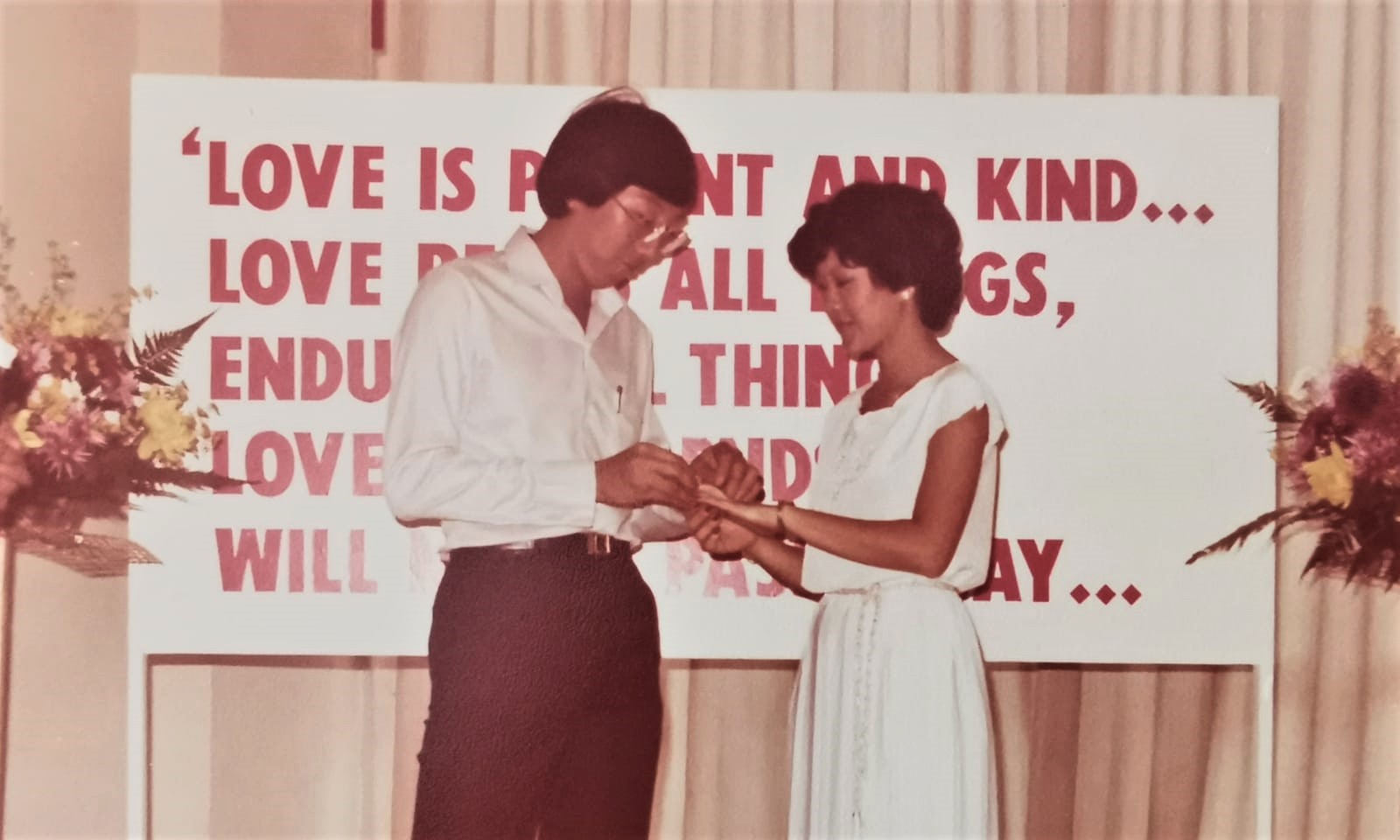
Chia and Swee getting engaged on Valentine’s Day 1981. Family and Sunday School friends were there to witness the occasion.
“Henry was a steady, determined guy with true grit. He was so wonderfully honest. He was an introvert, but a very good listener and most sincere.
“When he spoke, there were no hidden messages. He was my best friend and we could talk about anything. We were soulmates.”
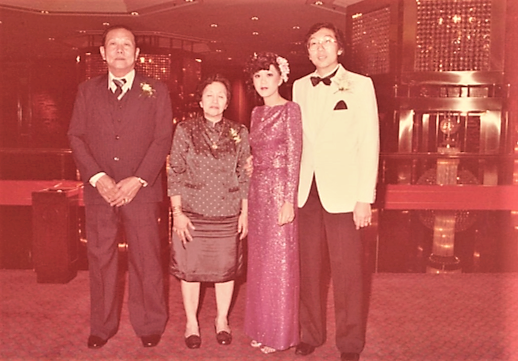
Swee and Chia on their wedding day in December 1982 with Chia’s parents.
Two years later in 1982, they got married.
Involved father
The 12 years of their marriage were largely idyllic.
“I guess you could say Henry was the perfect husband.”
The couple moved to Hong Kong in 1985 because of Chia’s work. The next year, they had their first son. Two years after that, their second son came along.
“Because of the children, he did not want me to work. But he encouraged me to get involved in church, and made sure I had an opportunity to lead and to serve.
“I was also his co-leader in our church’s cell group at home. We hosted many guests in our apartment, both from work and from church.
“I enjoyed cooking and counted it a privilege to be beside him when we entertained at home or in fine restaurants. I knew my role as a businessman’s wife and we complemented each other well.”
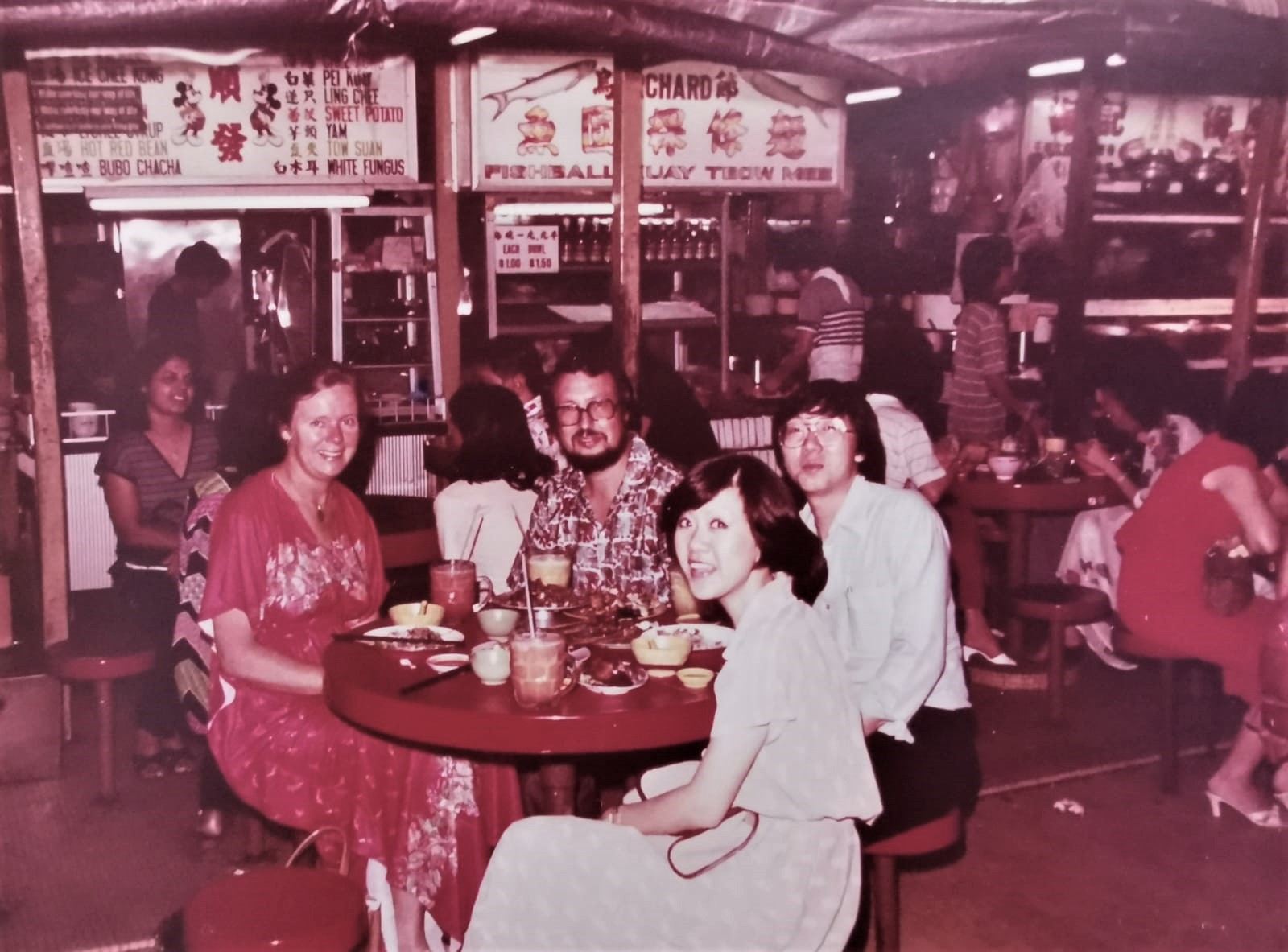
Swee and Chia (right) entertaining Chia’s business clients in 1980.
Chia was an involved father. Despite an intense workload, he always reserved the weekends for family.
“We would go to the parks and beaches in Hong Kong. He taught our kids how to fly a kite, how to cycle and how to fall without injuring themselves.
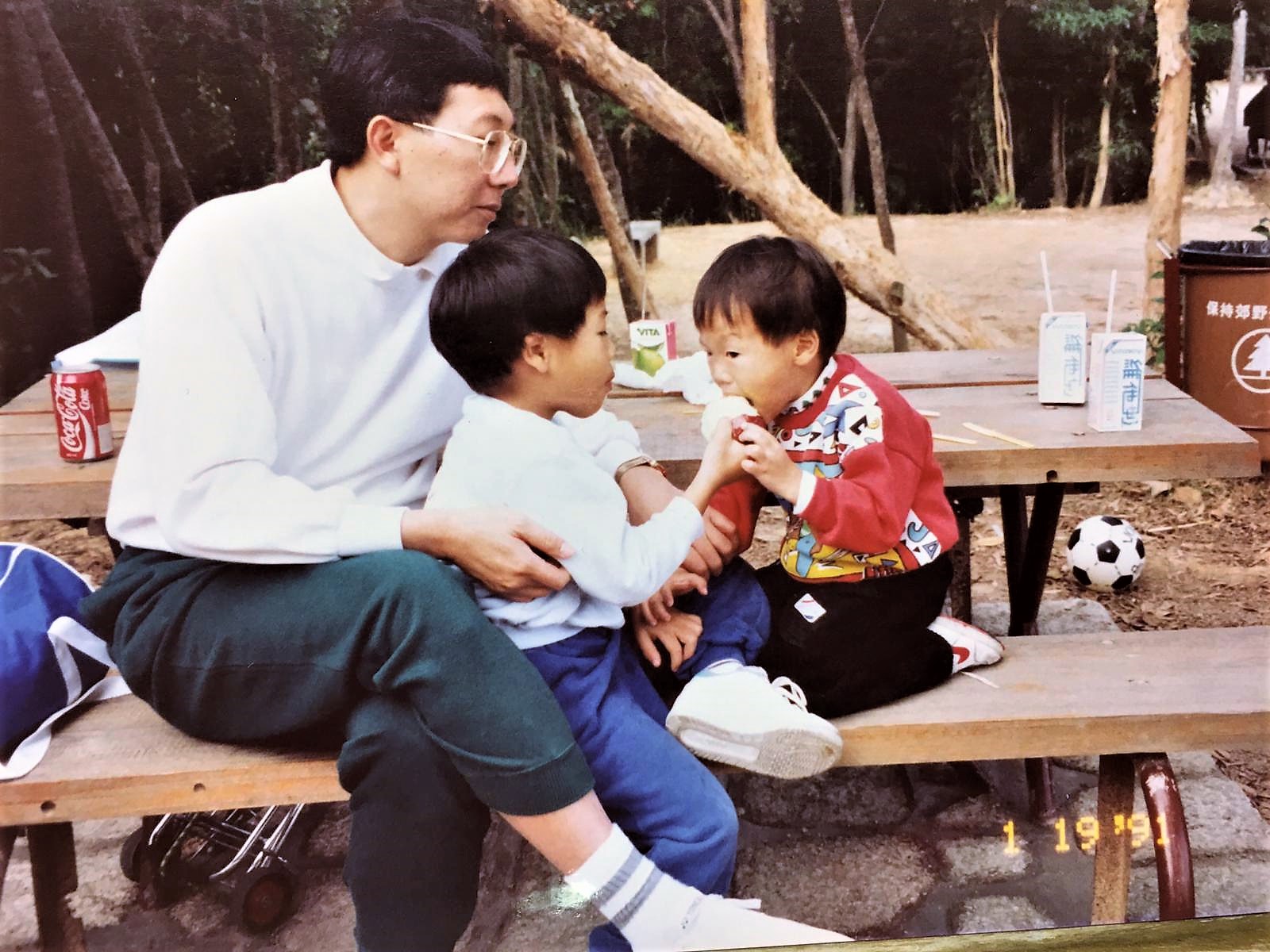
Chia with their sons at Tai Tam Country Park in Hong Kong during the autumn of 1990. Chia would reserve weekends to spend time with his family despite his busy work schedule.
“I guess you could say Henry was the perfect husband. That’s not to say that we had no challenges, but we worked on our marriage and it was most fulfilling.”
“I felt the hand of God touching me and massaging me.”
Then, came a bolt from the blue. In 1992, Chia, who had only experienced occasional heartburn and digestion problems, suddenly felt pain when swallowing food and had a distended stomach.
A nurse friend of the family arranged for an endoscopy the next day. It was then that Chia was diagnosed with stage four cancer. The tumour, the size of a golf ball, was sitting at the bottom of his oesophagus and on top of his stomach.
At the time, their sons were only six and four.
“The news was all the more shocking because there had been no symptoms or warning signs.”
Within a week of the diagnosis, Chia was scheduled for surgery. Such was the urgency of the situation. Doctors removed his whole stomach.
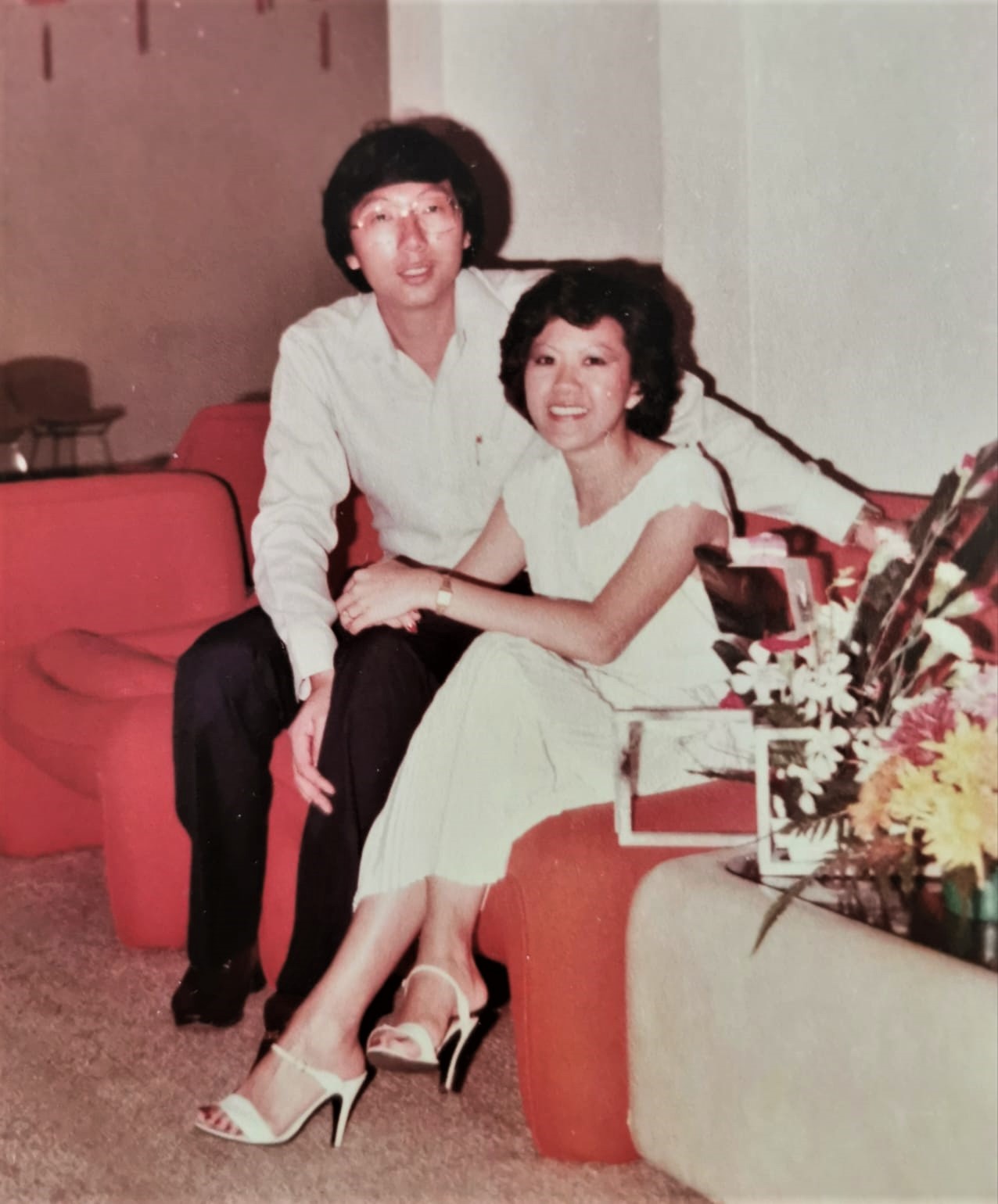
Chia was Swee’s soulmate, someone she could always talk to about anything.
At the Intensive Care Unit (ICU) after the surgery, Chia developed a high fever, a sign that an infection had set in. Doctors told Swee there was nothing more to be done, but their church refused to give up. Pastors and friends prayed for Chia.
In answer to those prayers, God visited Chia in the hospital room, said Swee.
“Henry described his experience this way, ‘I felt the hand of God, about five times the size of my hand, touching me and massaging me. After that, I felt my body lifted up and cool water being poured down my body. I was like a marathon runner being refreshed by chilled bottled water.’”
Chia would recover rapidly. Within a month, he was well enough to travel to Penang, Malaysia, for his company annual conference.
“He could even enjoy a whole bowl of Penang prawn noodles without choking.”
But Chia was not in the clear.
“He would rather trust the Lord and live a quality life on borrowed time, by His grace.”
Doctors told them that there were still microscopic cancer cells in his body spread by the original tumour. Medical technology then was not advanced enough to detect where those cells had spread.
With four lymph nodes already affected, there was a high possibility that the cancer would return within two years.
There were only two options: Chemotherapy or no treatment.
Chemotherapy was highly risky given the fact that they did not know where the cancer cells were. Not doing anything meant that they would be simply waiting for the cancer to resurface.
Both options were equally poor. Chia took many walks to seek God in the matter. In the end, he chose to do nothing.
Said Swee: “Henry said he would not allow the doctor to do ‘blind guerilla warfare’ in his body.
“He would rather trust the Lord and live a quality life on borrowed time, by His grace.
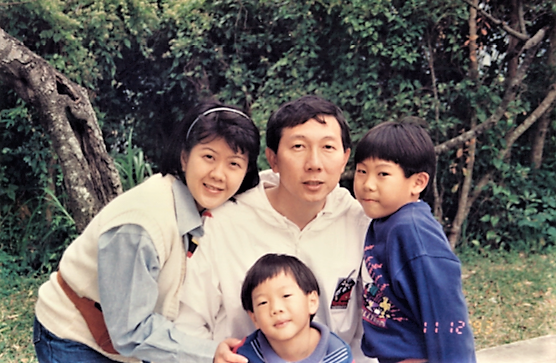
Swee, Chia and their sons in December 1993 when he was living, as he put it, on “borrowed time given by the Lord”.
“I agreed with him that we should spend whatever good years left for him to enjoy being with the children rather than being isolated for long periods of time due to low immunity while under chemotherapy.”
Your will be done
Within 15 months in March 1994, the family was given the news they had been dreading.
“I cried out to the Lord to give me grace.”
The cancer had recurred in the bile duct and metastasised to his abdomen. This time it was inoperable.
“We spent a week taking long walks at South Bay with the Lord and pouring our hearts out to Him, asking for His miraculous healing and to extend our years together.
“Finally, we came to a point of surrender and said, ‘Your will be done.’”
Doctors told them to return to Singapore to be with their families.
When they got to Singapore, Chia was hospitalised. A week later, he slipped into a coma.
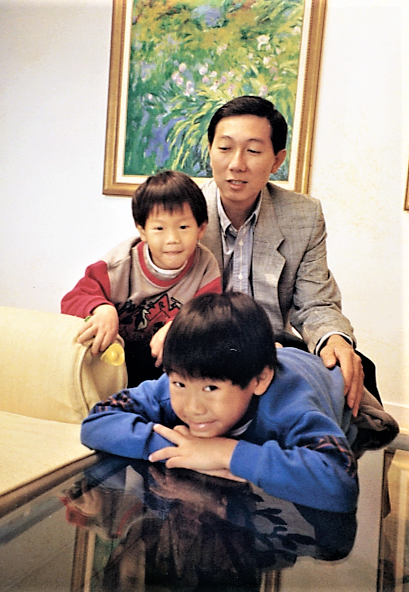
Chia and their sons in June 1994, just a month before he passed away. This was probably one of their last photographs together.
Said Swee: “I cried out to the Lord to give me grace.”
“Their kindness was medicine to our souls.”
Within three weeks, on July 19, Chia passed away.
“I had just left the hospital when the doctor called me to return immediately. The night doctor broke the news to me.
“Henry looked peaceful and calm. I was assured they had done the best they could.”
The family had moved to Hong Kong for Chia’s work.
Now, there was no more reason to return.
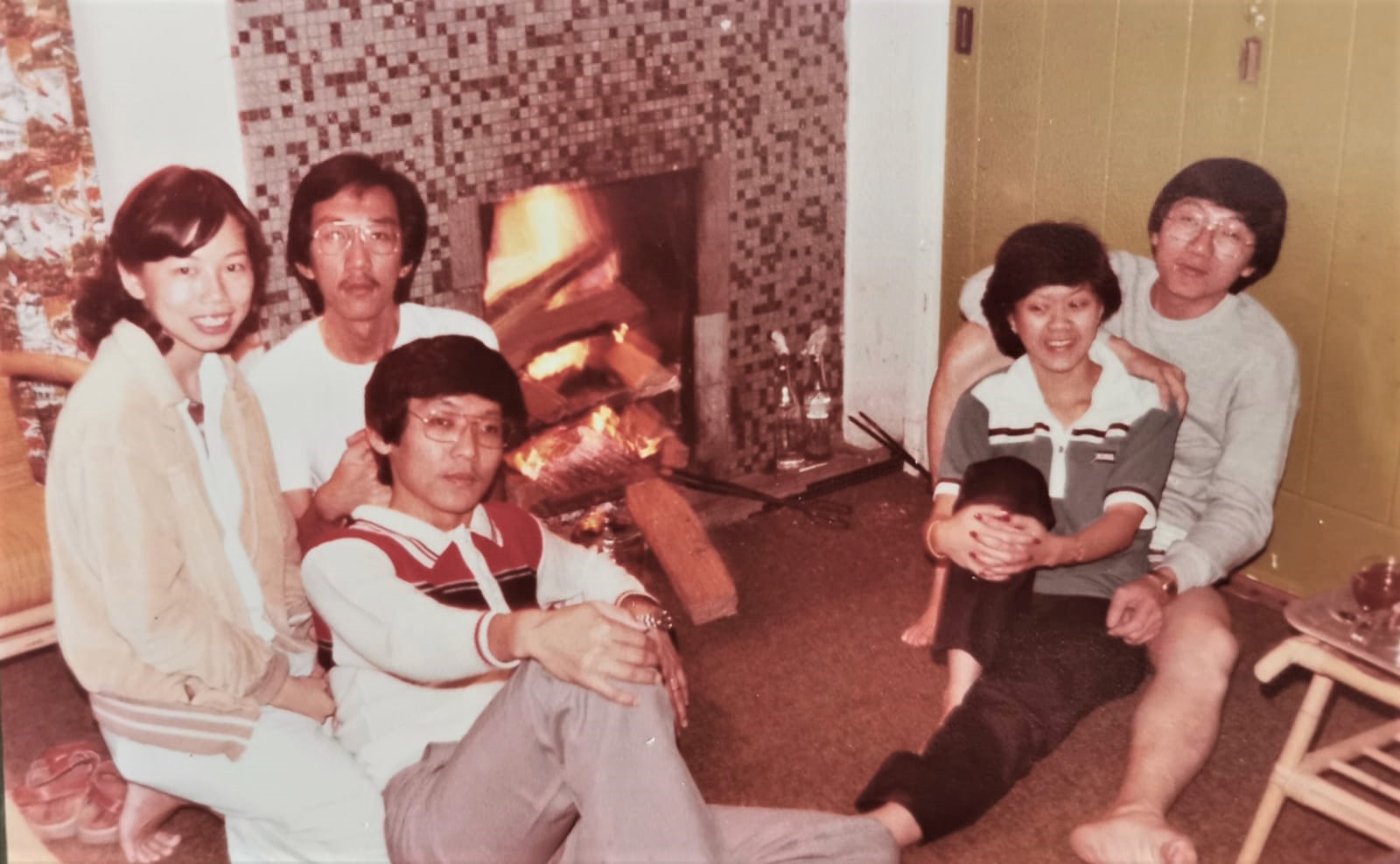
Swee and Chia (right) with their Sunday School friends on a holiday. Their Sunday School friends were the ones who stood by Swee when Chia passed away and helped her and her sons heal.
But in Singapore, Swee had no home because they had sold their HDB flat to relocate to Hong Kong. So, for nine months, she and her sons lived with one of her husband’s brothers and his family.
“Henry looked peaceful and calm. I was assured they had done the best they could.”
“Their home was a shelter from the storm. Their kindness was medicine to our souls.
“My sister-in-law would just hug my sons and love them.
“We were gradually nursed back to health, and I am forever grateful for their compassionate love. I could not have asked for a more nurturing grief recovery environment than their home.”
On weekends, Swee and her sons stayed with her older son’s godparents to give her brother-in-law, his wife and their three sons some space.
Unbearable grief
But Chia’s passing was difficult for everyone.
Having lived their whole lives in Hong Kong, Swee’s sons, aged six and eight by then, had to cope with – not only the loss of their father – but also the loss of the only home they had ever known.
“It was a major struggle to relocate to Singapore, to adjust to the Singapore education system and to manage the volatile emotions of my sons.
“Singapore had always been a holiday place where we visited Henry’s large family – their grandparents, uncles and cousins.
“Now, it was a sad place. No more Papa to swim with or ride the bicycle with, no more big daddy hugs.
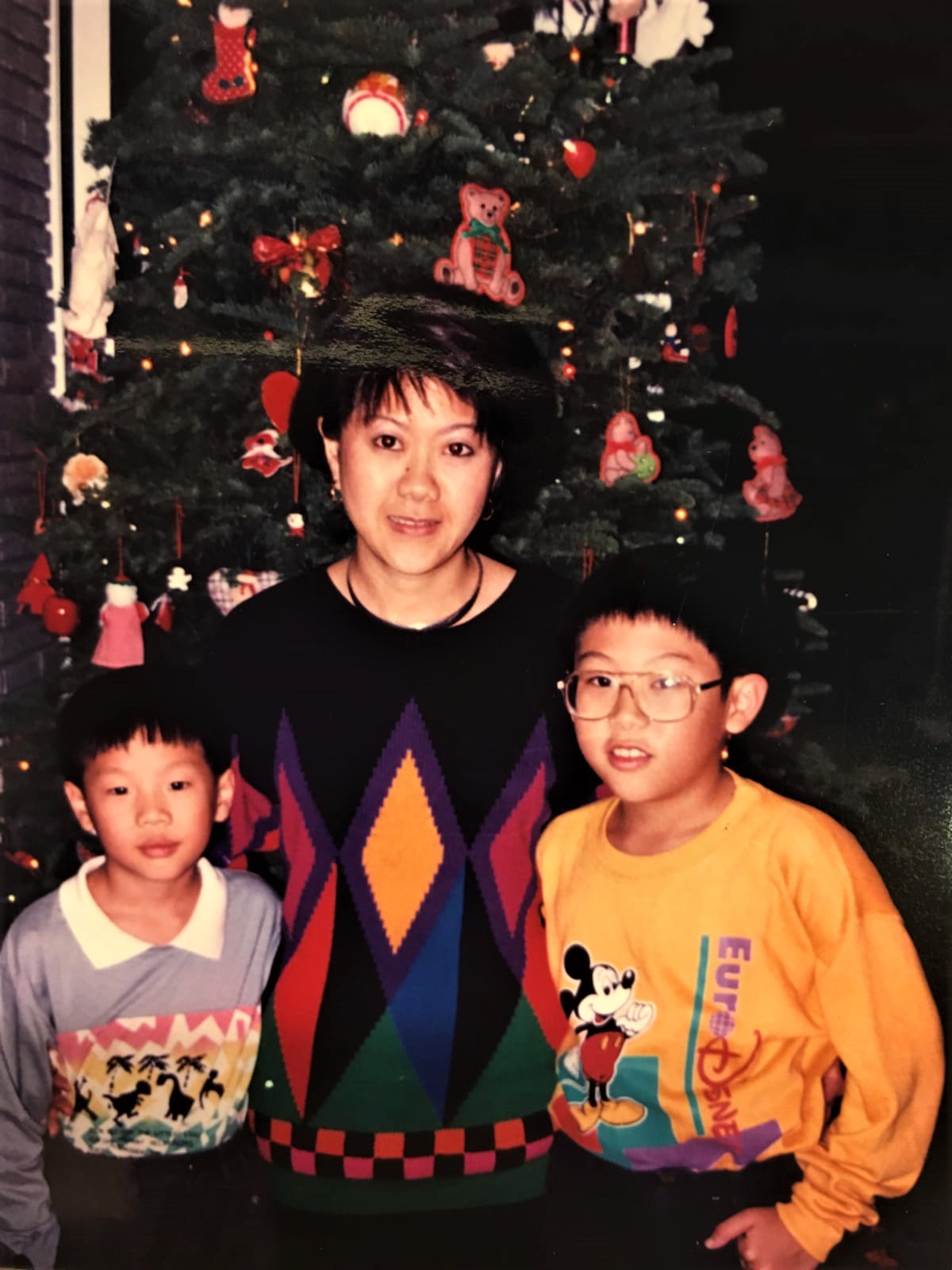
Swee and her sons in Hong Kong a year and a half after Chia passed away.
“My boys were in emotional chaos, and full of grief and anger. They were traumatised by their father’s death. There was a lot of angst.”
Swee had to deal with their temper tantrums and outbursts – “they were breaking cups and plates when they were unable to control their anger” – while managing her own grief.
“For the first six months, my pillow was wet with tears every night as I tried to forget the nightmare and erase the vivid memories of hospitals, blood test results, conversations … the final months, weeks and moments.
“My boys were in emotional chaos, and full of grief and anger.”
“No words could express how I felt. No human comfort could address the pain. I had so many unanswered questions, ‘Why did God take Henry away from me? What would He have me live for?’”
To give vent to her feelings, Swee would drive to a secluded part of Old Holland Road where she would shout at God and cry out to Him.
She also joined a gym and spent up to four times a week working off her emotions.
“The process was necessary for me – the ‘sparring’ sessions I had with God and the gym workout.
“These helped me to unload my own emotions so that I could be emotionally available for my boys and take in all their venting and turmoil.”
A lonely place
To understand her own experience, Swee read voraciously.
“There was no one in my circle of relatives, friends or acquaintances who had lost their spouse. I was the only widow I knew. It was a most awful and lonely place to be in.”
“I needed to know if God still loved me.”
Among the many books she bought was one called My Daddy Died And It’s All God’s Fault.
“I thought: How apt! The book became a healing balm for the boys as it helped them to open up and talk about their grief.”
Swee also sought God to work through her grief. She went for a retreat two months after Chia’s funeral, armed with her Bible, Christian worship tapes and Christian books.
She went to Israel that same year with church friends.
“I needed to know if God still loved me. I had so many unanswered questions. I was glad for the intimate experiences with Jesus.
“I was crying inside most of the time. I was missing Henry very badly.”
“As I stayed in the Garden of Gethsemane, in Caiaphas’ dungeon, at Galilee and at Golgotha, I experienced God’s presence and felt so loved by Jesus.
“On that trip, I was healed again by His redeeming love. I realised that nothing could separate me from the love of God. Nothing – not death – not even Henry’s death.”
Still, it was a lonely journey.
“Literally everywhere I looked, I was surrounded by happily married couples – my sisters, my in-laws, my close friends.
“I was happy for them that they were happy. They ought to be happy. But I was crying inside most of the time. I was missing Henry very badly.”
Moving towards restoration
Two years into her widowhood, Swee met another widow, Joyce Lye, who had been meeting with a group of five or six other widows on occasion.
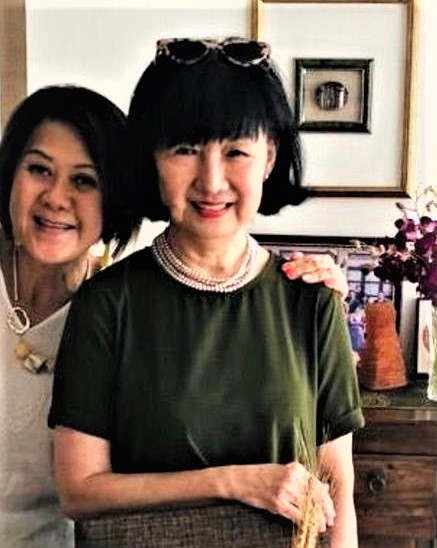
Two years after her bereavement, Swee met Joyce Lye (right) who was also a widow. Together, they would found WiCare Support Group, a support group for widows and their children.
Swee turned the informal meeting into a regular support group for widows and their children. They would meet in Swee’s home.
In October 1998, that group officially became Wicare Support Group, a non-profit organisation helping widows in their bereavement.
As Swee journeyed with women who had lost their husbands like she had, her brokenness slowly healed.
“I could glimpse the purpose amidst the pain. The comfort that I had received from God now became the comfort I gave to others, whether they were of the same faith or were from different faith backgrounds.”
“I had not been able to help them in their grief and had been crying out for answers.”
Swee returned to work in corporate training and became a certified life coach. Then, she obtained a Master of Science in Professional Counselling while working and volunteering.
“I pursued these avenues of training and development because I wanted to become more effective in helping others out of grief. I had found my calling amidst the pain.”
Five years ago, in her quest to understand why “some remained stuck in their grief, unable to move beyond the pain”, Swee came across the Grief Recovery Method® (GRM).
“I had not been able to help them in their grief and had been crying out for answers, ‘Why, God? What’s the key? What am I missing?’
“When I came across this method, I thought: Hallelujah! Could this be what I have been looking for?”
Swee went abroad to get certified as a grief recovery specialist with the Grief Recovery Institute. Convinced that this was a model that could help people get out of their grief, Swee established Whispering Hope Singapore in 2017 which uses GRM.
“We are the only consultancy in Singapore that specialises in GRM. Our goal is grief education – to equip people with the language and tools they need around the concept of grief so that they can move forward to pursue their hopes and dreams, finding joy and fulfilment despite life’s losses.”

Swee conducting a workshop about dealing with grief.
Key to GRM is debunking myths associated with grief.
“You have probably heard these common cliches and you may even have dispensed similar advice at one time or another: Be strong; you can always replace the loss with something else; you will feel better in time.
“To try to recover from loss while trapped in these myths is akin to a person trying to walk in knee-deep mud. It’s exhausting and ultimately unproductive.”
It has been 27 years since her husband passed away and Swee would like to attest to the truth that there can be life after such heart-breaking loss.
“We had such a wonderful marriage for close to 12 years. I have absolutely no regrets.”
“I have since learned from personal experience that there really can be an end to grief. We can all move beyond loss and grief towards recovery, resilience and restoration.
“I am happy with my life as it is and I am living it to the fullest.”
Swee’s sons are now grown men in their 30s and “thriving despite having weathered great grief and profound loss”.
“I trust that everything that happens to me is allowed by God. That would include Henry’s death.
“The real question then is, ‘If I knew Henry was going to die young, would I still have married him?’
“My answer is a loud, ‘Yes!’ We had such a wonderful marriage for close to 12 years. I have absolutely no regrets.”
RELATED STORIES:
Business down by up to 97%, yet these restaurant owners are still giving to the community
Well acquainted with grief, these women now provide a safe space for widows and the fatherless
We are an independent, non-profit organisation that relies on the generosity of our readers, such as yourself, to continue serving the kingdom. Every dollar donated goes directly back into our editorial coverage.
Would you consider partnering with us in our kingdom work by supporting us financially, either as a one-off donation, or a recurring pledge?
Support Salt&Light